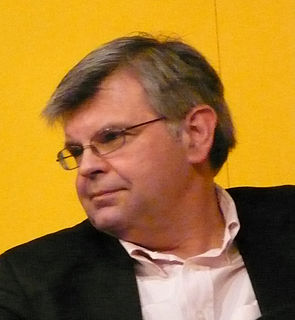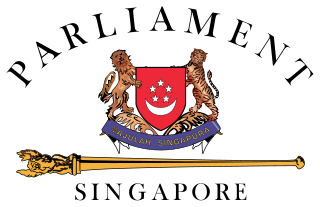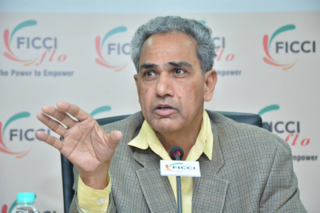Related Research Articles

The Congressional Research Service (CRS) is a public policy research institute of the United States Congress. Operating within the Library of Congress, it works primarily and directly for members of Congress and their committees and staff on a confidential, nonpartisan basis. CRS is sometimes known as Congress' think tank due to its broad mandate of providing research and analysis on all matters relevant to national policymaking.

The Parliament of India is the supreme legislative body of the Republic of India. It is a bicameral legislature composed of the president of India and two houses: the Rajya Sabha and the Lok Sabha. The president in his role as head of the legislature has full powers to summon and prorogue either house of Parliament or to dissolve the Lok Sabha. The president can exercise these powers only upon the advice of the prime minister and his Union Council of Ministers.

The 14th Lok Sabha was convened after the 2004 Indian general election held in four phases during 20 April – 10 May 2004, which led to the formation of first Manmohan Singh ministry (2004–2009). Indian National Congress-led United Progressive Alliance won 62 more seats than previous 13th Lok Sabha. The Lok Sabha is the lower house in the Parliament of India. 8 sitting members from Rajya Sabha, the Upper House of Indian Parliament, were elected to 14th Lok Sabha after the 2004 Indian general election.

A Member of the Legislative Assembly (MLA) is a representative elected by the voters of an electoral district (constituency) to the legislature of State government in the Indian system of government. From each constituency, the people elect one representative who then becomes a member of the Legislative Assembly (MLA). Each state has between seven and nine MLAs for every Member of Parliament (MP) that it has in the Lok Sabha, the lower house of India's bicameral parliament. There are also members in three unicameral legislatures in Union Territories: the Delhi Legislative Assembly, Jammu and Kashmir Legislative Assembly and the Puducherry Legislative Assembly. Only a Member of the Legislative Assembly can work as a minister for more than 6 months. If a non-Member of the Legislative Assembly becomes a Chief Minister or a minister, he must become an MLA within 6 months to continue in the job. Only a Member of the Legislative Assembly can become a Speaker of the Legislature.

David Ross Howarth is a British academic and politician who was the Liberal Democrat Member of Parliament for Cambridge from 2005–10. He served as an Electoral Commissioner between 2010 and 2018. He is Professor of Law and Public Policy at the University of Cambridge.

The Parliament of Singapore is the unicameral legislature of Singapore, along with the President of Singapore. Largely based upon the Westminster system, the Parliament is made up of Members of Parliament (MPs) who are elected, as well as Non-constituency Members of Parliament (NCMPs) and Nominated Members of Parliament (NMPs) who are appointed. Following the 2020 general election, 93 MPs and two NCMPs were elected to the 14th Parliament. Nine NMPs will usually be appointed by the president.

The Hellenic Parliament, also known as the Parliament of the Hellenes, the Hellenic Bouleterion or Greek Parliament, is the unicameral legislature of Greece, located in the Old Royal Palace, overlooking Syntagma Square in Athens. The parliament is the supreme democratic institution that represents the citizens through an elected body of Members of Parliament (MPs).

The Kerala Legislative Assembly, popularly known as the Kerala Niyamasabha, is the State Assembly of Kerala, one of the 28 states in India. The Assembly is formed by 140 elected representatives. Each elected member represents one of the 140 constituencies within the borders of Kerala and is referred to as Member of the Legislative Assembly (MLA). The present Kerala Legislative Assembly consists of 140 elected members.
Parliamentary informatics is the application of information technology to the documentation of legislative activity. The principal areas of concern are the provision, in a form conveniently readable to humans or machines, of information and statistics about:
C. V. Madhukar is an Indian banker who was most recently Managing Director at Omidyar Network. He was the global lead for their work on Digital Identity. He has been the founder and director of PRS Legislative Research. This research institution that focuses on making the legislative process in India better informed, more transparent and participatory. PRS publishes "Legislative Briefs" of Bills in Lok Sabha and Rajya Sabha and other articles about the work of the Indian parliament.

Ninong Ering is an Indian politician belonging to the Indian National Congress. He represented the Arunachal East in Lok Sabha, the lower house of Indian Parliament from 2009 to 2019. He was the Union Minister of State for Minority Affairs from 2012 to 2014.
Rajeev Shankarrao Satav was an Indian politician from the Indian National Congress. At the time of his death, he was the member of the Rajya Sabha the upper house of Indian Parliament from Maharashtra.

The Representation of the People Act, 1951 is an act of Parliament of India to provide for the conduct of election of the Houses of Parliament and to the House or Houses of the Legislature of each State, the qualifications and disqualifications for membership of those Houses, the corrupt practices and other offences at or in connection with such elections and the decision of doubts and disputes arising out of or in connection with such elections. It was introduced in Parliament by law minister Dr. B.R. Ambedkar. The Act was enacted by the provisional parliament under Article 327 of Indian Constitution, before the first general election.
M. R. Madhavan is the President and co-founder of PRS Legislative Research, a public policy research institution that focuses on making the legislative process in India better informed, more transparent and participatory. PRS publishes "legislative briefs" of Bills in Lok Sabha and Rajya Sabha and other articles related to legislation in India.
The Andhra Pradesh Reorganisation Act of 2014, commonly known as the Telangana Act, is an Act of Indian Parliament that bifurcated the state of Andhra Pradesh into Telangana and the residuary Andhra Pradesh state, as an outcome of the Telangana movement. The Act defined the boundaries of the two states, determined how the assets and liabilities were to be divided, and laid out the status of Hyderabad as the permanent capital of new Telangana state and temporary capital of the Andhra Pradesh state.

Harish Chandra Meena is an Indian Politician from the state of Rajasthan. He has been associated with Bharatiya Janata Party and currently Indian National Congress. He was a Member of Parliament of the 16th Lok Sabha from the constituency of Dausa, Rajasthan. He is a retired Indian Police Service (IPS) officer of 1976 batch and former Director General of Police (DGP). He served as DGP of Rajasthan from March 2009 to December 2013 which is recorded to be IUI the longest tenure of a DGP in Rajasthan. He has also been awarded the 1996 Indian Police Medal and 2002 President Medal.
Following is the List of different government officials in the Indian government, along with their respective posts and position in the Indian order of precedence and the salaries and various allowances and emoluments given to them according to the government act.

V. Vijayasai Reddy is the Member of Parliament, Rajya Sabha, Chairman of the Parliamentary Standing Committee on Commerce, Parliamentary Party Leader, The National General Secretary of YSR Congress Party and Chartered Accountant.

A Member of Parliament in the Rajya Sabha is the representative of the Indian states to the one of the two houses of the Parliament of India. Rajya Sabha MPs are elected by the electoral college of the elected members of the State Assembly with a system of proportional representation by a single transferable vote. Parliament of India is bicameral with two houses; Rajya Sabha and the Lok Sabha. The total number of members of Rajya Sabha are lesser than the Members of Parliament in the Lok Sabha and have more restricted power than the lower house. Unlike membership to the Lok Sabha, membership to the Rajya Sabha is permanent body and cannot be dissolved at any time. However every second year, one third of the members are retired and vacancy are filled up by fresh elections and Presidential nomination at the beginning of every third year.
Defection by legislators occurs in many democracies. It can be argued that they can undermine the stability of the cabinet, which is dependent on the support of elected legislators. The argument follows that such instability can amount to a betrayal of the people's mandate as voiced at the most recent prior election.
References
- ↑ "PRS". www.prsindia.org. Retrieved 5 April 2018.
- ↑ Singh, Nirvikar (2003). "Some Economic Consequences of India's Institutions of Governance: A Conceptual Framework". Recent Work: Santa Cruz Centre for International Economics. UC Santa Cruz. Retrieved 2012-04-17.
- ↑ C.V. Madhukar: His work on Bills makes it easy for MPs to take part in debates
- ↑ Media section on the PRS Website
- ↑ PRS Website
- ↑ MP Track on the PRS website
- ↑ Laws of India.org
- ↑ "LAMP Fellows 20110-11 | LAMP Fellowship". Archived from the original on 2013-05-24. Retrieved 2013-07-05.
- ↑ "LAMP Fellows 2011-12 | LAMP Fellowship". Archived from the original on 2012-11-12. Retrieved 2013-07-05.
- ↑ "LAMP Fellows 2012-13 | LAMP Fellowship". Archived from the original on 2013-07-06. Retrieved 2013-07-05.
- ↑ "Legislative Assistant to Member of Parliament Fellowship | LAMP Fellowship". Archived from the original on 2014-04-23. Retrieved 2014-05-05.
This article includes a list of general references, but it lacks sufficient corresponding inline citations .(May 2015) |
Media on PRS
Articles by the PRS team
Articles citing PRS
- Where the Women Are
- All Bills Old and Older
- House in Numbers
- Is this why we sent them to Parliament?
- Google announces $25m aid for India
- It's not just about MP's allowances
- Quality at Rs 500 a day?
- Older MPs outshone the young in parliament, say statistics [ permanent dead link ]
- Parliament was not a priority for some MPs
- On debut, inheritors fell short of national performance average
- 7 LDF MPs have cases registered against them
- Raised to the Power W
- Does anti-defection law stifle MPs? [ permanent dead link ]